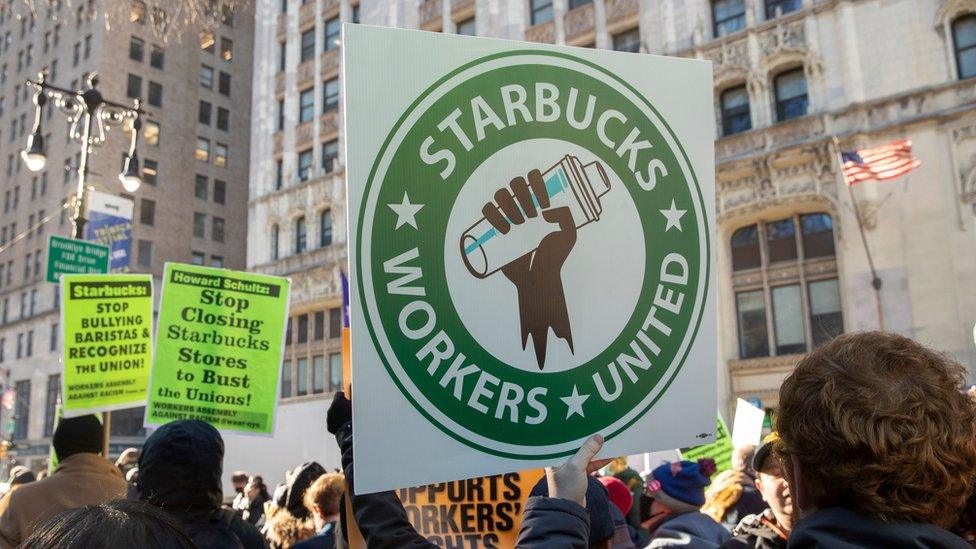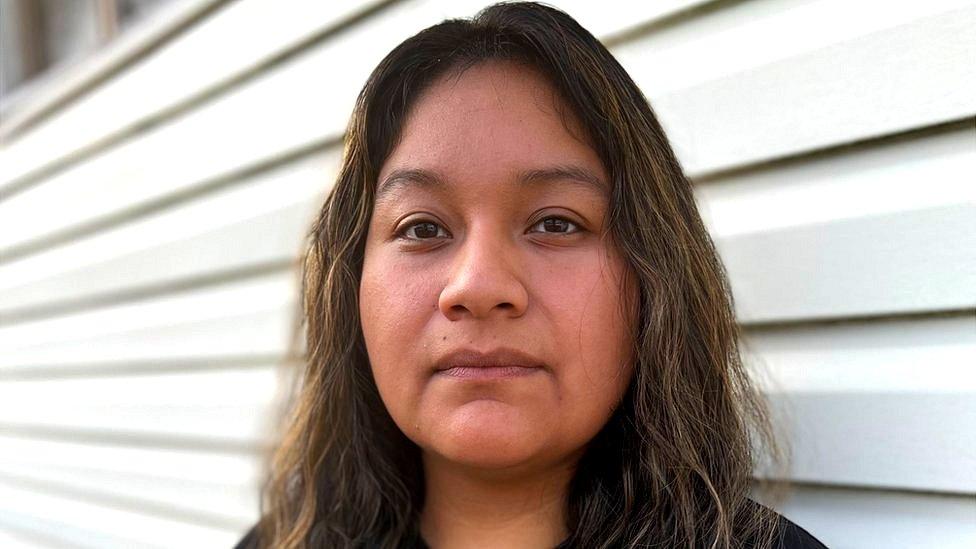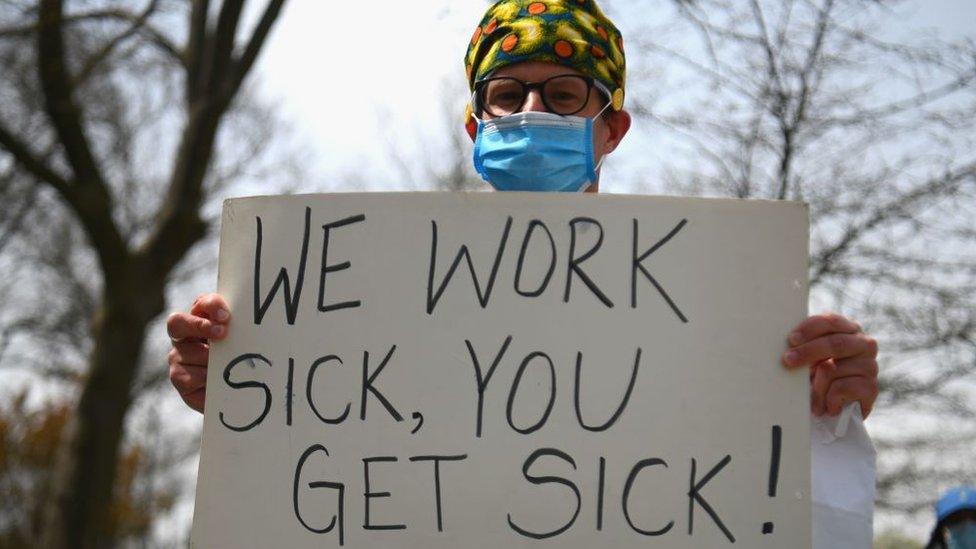Starbucks set for walkouts in US over unionisation
- Published

Starbucks is facing a three-day strike in the US, as workers engage in a bitter battle with the coffee giant over joining unions.
The walkout will affect 100 stores, where workers have joined organisations over the past year despite fierce opposition from the firm.
Campaigners say they are protesting the firm's harsh response, including firing workers and closing shops.
Starbucks said it respected workers' right to protest.
"Our focus remains on all partners and our commitment to continue to work together, side by side, to make Starbucks a company that works for everyone," said a spokeswoman for the company, which owns roughly 9,000 stores in the US and licenses the brand to thousands more shops.
Workers at around 270 Starbucks stores across the country have voted to join unions over the past year, making unprecedented inroads at the firm which has long prided itself on its reputation as a progressive, worker-friendly employer.
The move allows them to collectively negotiate pay and other benefits, but workers have accused the company of dragging its feet at the bargaining table and violating labour law as it tries to squelch the movement.
Last month, workers held demonstrations at more than 100 Starbucks stores.
"They're doubling down on their union-busting, so we're doubling down, too," said barista Michelle Eisen, one of the leaders of Starbucks Workers United. "We're demanding fair staffing, an end to store closures, and that Starbucks bargain with us in good faith."
Over the past year, Starbucks has raised pay and announced other changes, in an effort to quell staff discontent, while disputing claims of retaliation.
In a recent update to investors, the company said its changes were helping, and that turnover among staff had declined.
It has not extended the new benefits to the unionised shops, saying those changes would have to be worked out in formal negotiations.
"With our partners in mind, we will continue to show up and be ready to bargain in good faith and have urged Workers United to do the same," the company said.
Though some investors have voiced concerns that the firm's labour fight would tarnish its brand, its business has appeared resilient.
The firm reported last month that traffic was approaching pre-pandemic levels in North America. Sales in the region rose 6% over the 12 months to October, lifted primarily by higher prices and new stores.
The union campaign at Starbucks has come at a time of unusual labour unrest in the US.
Workers filed more than 1,600 formal requests to join unions in the 12 months to October - the highest number since 2016, according to the National Labor Relations Board, which said complaints of labour violations had also increased.
The efforts have touched retail giants such as Apple and Amazon, as well as media, software and grocery firms.
A strong jobs market has emboldened workers, even as the rising cost of living and strains related to the pandemic increase discontent.
Related topics
- Published15 August 2022

- Published3 December 2022
